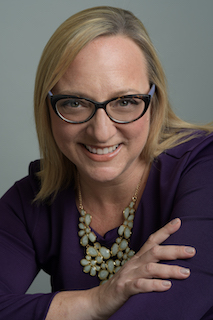Category: Transdiagnostic
Symposium 33 - Quantitative and Qualitative Examination of the Unified Protocol for Adolescents: Implementation in Diverse Contexts
Level of Familiarity: All
Recommended Readings: Carlucci, L., Saggino, A., & Balsamo, M. (2021). On the efficacy of the unified protocol for transdiagnostic treatment of emotional disorders: A systematic review and meta-analysis. Clinical Psychology Review, 87, 101999.,
Ringle, V. A., Read, K. L., Edmunds, J. M., Brodman, D. M., Kendall, P. C., Barg, F., & Beidas, R. S. (2015). Barriers to and facilitators in the implementation of cognitive-behavioral therapy for youth anxiety in the community. Psychiatric Services, 66(9), 938-945.
,Ehrenreich-May, J., Kennedy, S. M., Sherman, J. A., Bilek, E. L., Buzzella, B. A., Bennett, S. M., & Barlow, D. H. (2017). Unified protocols for transdiagnostic treatment of emotional disorders in children and adolescents: Therapist guide. Oxford University Press.
,Kennedy, S. M., Wilkie, D. P., Henry, L., Moe-Hartman, J., Townson, K., Anthony, L. G., & Hawks, J. L. (2022). The Unified Protocols for Children and Adolescents in Partial Hospitalization: Using Implementation Science Frameworks to Guide Adaptation. Cognitive and Behavioral Practice.
,Weintraub, M. J., Ichinose, M. C., Zinberg, J., Done, M., Morgan-Fleming, G. M., Wilkerson, C. A., ... & Miklowitz, D. J. (2022). App-enhanced transdiagnostic CBT for adolescents with mood or psychotic spectrum disorders. Journal of affective disorders, 311, 319-326.
-
.jpg)
Marc Weintraub, Ph.D. (he/him/his)
Assistant Professor
UCLA School of Medicine
Los Angeles, California -
VM
Vanesa Mora Ringle, Ph.D. (she/her/hers)
Lehigh University
Bethlehem, Pennsylvania -

Jill Ehrenreich-May, Ph.D.
Professor
University of Miami
Miami, Florida -
GD
Gina Dimitropoulos, Ph.D. (she/her/hers)
Associate Professor
University of Calgary
Calgary, Alberta, Canada -
EC
Elizabeth Casline, M.S. (she/her/hers)
Children's Hospital Colorado
Miami, Florida -
.jpg)
Marc Weintraub, Ph.D. (he/him/his)
Assistant Professor
UCLA School of Medicine
Los Angeles, California -
VM
Vanesa Mora Ringle, Ph.D. (she/her/hers)
Lehigh University
Bethlehem, Pennsylvania -
CV
Clarissa Velez, M.S. (she/her/hers)
University of Miami
Coral Gables, Florida
Chair(s)
Discussant(s)
Presenter(s)
This symposium will present some of the latest research examining updates to the Unified Protocol for Adolescents (UP-A), an evidenced-based transdiagnostic treatment for emotional disorders. Updates include 5 unique studies on extensions to new clinical populations and improvements for diverse settings. First, Dimitropoulos and colleagues will present on their adaption of the UP-A as a brief-format group treatment for college youth presenting to community care in Canada. Quantitative and qualitative data on the acceptability, feasibility, and preliminary efficacy of their open trial conducted with 46 participants over 12-weeks will be presented. Second, Casline and colleagues will present quantitative and qualitative data on their work adapting the UP-A for youth with severe impairment or distress who are presenting to intensive mental health settings (i.e., partial hospitalization programs; PHP). Participants were 17 clinical providers with various specialties who provided data on implementation of both the UP-A and the UP-C (for children) across two different PHP sites. Third, Weintraub and colleagues will present their research extending the UP-A to youth with severe mental illness (SMI; including bipolar spectrum disorders and psychotic conditions). Additionally, they will present on a mobile application (app) they created as an adjunct to the UP-A in which youth and parent participants can review UP-A content, log and track their symptoms, and practice treatment skills. Weintraub and colleagues will present quantitative data on their open trial with 24 families and preliminary data from their randomized controlled trial (estimated N = 60) of an app-enhanced UP-A for youth with SMI. Fourth, Mora Ringle and colleagues will present data from qualitative interviews with 20 community frontline providers working in low-resource settings. Results revealed a range of issues, including cross-cultural relevance, transdiagnostic appropriateness, and needed modifications to the UP-A for its use with diverse families. Fifth, Velez and colleagues will present data from various public school stakeholders in Miami, Florida, regarding feedback on how to best adapt the UP-A in lower-resourced high school settings. Participants included teachers, administrators, students, caregivers, and mental health providers. Various themes from these interviews will be discussed including social determinants of health, methods of psychoeducation and mental health identification, building trust and reducing stigma, flexible format offerings, and treatment barriers (e.g., low parental involvement). Finally, Discussant Jill Ehrenreich-May will integrate the findings with the broader literature on the UP, and discuss how these results increase our understanding of the clinical and cultural factors that affect the delivery and implementation of the UP-A. She will also discuss key areas of future direction for these treatments.
Learning Objectives:
- Describe transdiagnostic CBT elements when working with children and adolescents.
- Recognize how and when it is appropriate to tailor UP-A to diverse populations.
- Identify the value and limitations of incorporating a mobile technology in the delivery of UP-A.
- Identify key translation issues when implementing UP-A in schools.
- Understand the advantages of both quantitative and qualitative methods in research on treatment development and effectiveness.
- Discuss issues around multiculturalism and the UP-A.

